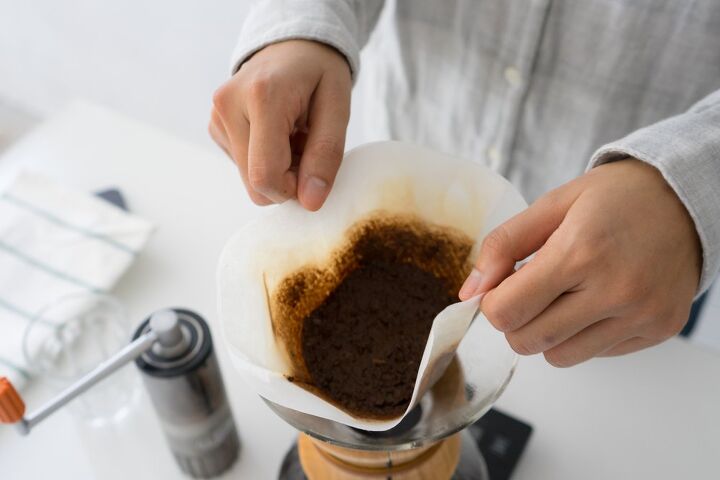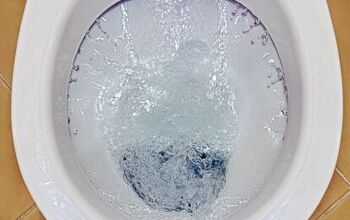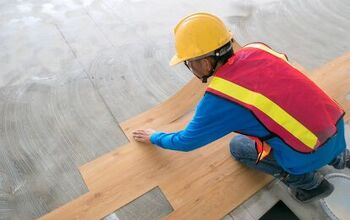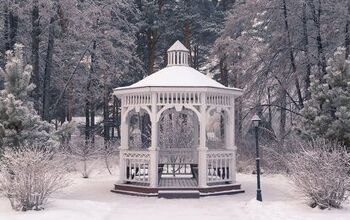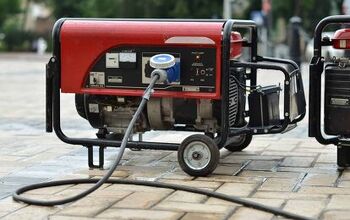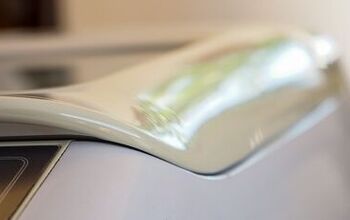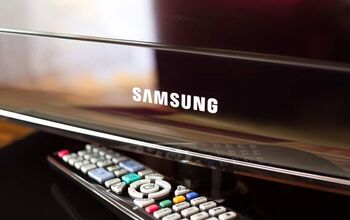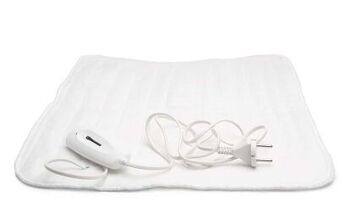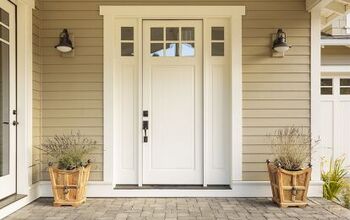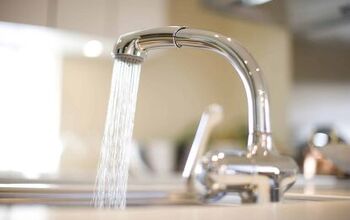Can Coffee Grounds Go Down The Sink?

Coffee-lovers often struggle to find the best way to dispose of coffee grounds. It is equally convenient to throw them and away and rinse them down the sink, but it’s more complicated than that. So, can coffee grounds go down the sink?
Coffee grounds can harm your plumbing if you rinse them down the sink. Water causes coffee grounds to clump together in your pipes which restricts the flow of water and food waste. It is okay to rinse coffee grounds down the garbage disposal if the drain is clean and you only do it occasionally.
Many homeowners compost their coffee grounds or spread them in their soil to get the most of them. Regularly rinsing coffee grounds down the sink can lead to expensive repairs and permanent pipe damage. Follow along as we explore what goes into rinsing coffee grounds down the sink and why it is harmful.
Is it Okay to Rinse Coffee Grounds Down the Drain?
It is potentially harmful to your plumbing to rinse coffee grounds down the drain. Coffee grounds can expand and stick together which may clog your pipes. Water and food waste will struggle to pass through your drainpipe if there is a buildup of coffee grounds.
Coffee grounds are more harmful to your sink the more often that you rinse them down the drain. A clogged sink will retain food waste and slowly drain water which can smell foul. You can avoid expensive plumbing repairs if you refrain from rinsing coffee grounds down the drain.
Coffee grounds can do down the sink if you do it rarely, but regularly doing it will clog the pipes. It costs an average of $155 to fix a clogged sink drain if you hire a professional. Costs can vary based on the severity, but it’s worth it to avoid rinsing coffee grounds so you don’t have to spend the money.
Can Coffee Grounds Go Down the Garbage Disposal?
Coffee grounds can down the garbage disposal without damaging the system. The shredding teeth in a garbage disposal can mince the coffee grounds and make them finer than they already are. Run water down the garbage disposal for 10-20 seconds after you wash the coffee grounds down.
This can help prevent the coffee grounds from clumping together and creating an obstruction. Coffee grounds can still be harmful if you haven’t cleaned the sink or garbage disposal recently. Luckily, you can clean a garbage disposal with household items like baking soda and vinegar.
Pour ½ cup baking soda and ¾-1 cup of white vinegar into the sink and let it sit for 10-15 minutes. Run hot water to rinse the white vinegar and baking soda then turn on the garbage disposal. Leave it on with the hot water running for 30 seconds to clear the garbage disposal.
How to Unclog Coffee Grounds From Sink
You can unclog coffee grounds from the sink with everything from plumbing equipment to commercial drain cleaners. The severity of the clog and your budget will determine the best method for you to use. Let’s take a look at the best and most practical ways to unclog coffee grounds from your sink.
Drain Snake
Drain snakes, also known as plumbing snakes, are a sure-fire way to unclog coffee grounds in your sink. The average homeowner likely doesn’t own a drain snake, but you can rent them from many hardware stores. You can rent a drain snake for 4 hours for less than $30 in most cases, and that saves you money compared to hiring a plumber.
It costs at least $100 on average for a plumber to snake your sink drain, but it can easily cost over $200. Unscrew the P-trap with a pipe wrench and shine a light into the pipe to see if you can locate the clog. Insert the drain snake into the pipe and push until you feel it hit the clump of coffee grounds.
Move the snake forwards and backward as many times as you need to unclog the pipe. Carefully remove the drain snake, reconnect the P-trap, and run water down the sink drain.
Plunger
A plunger can unclog coffee grounds from your sink if the clog isn’t too severe. This is the best option if your sink is draining slowly but is clogged. Sanitize the plunger if necessary and place it over the sink drain.
Pump the plunger 4-5 times to create suction and alleviate the pressure. The clump of coffee grounds should come loose so that you can rinse them down the drain. Boil water and pour it into the sink before you plunge it if you don’t have any luck.
Hot water won’t unclog the sink entirely in most cases, but it will help soften the coffee grounds before you plunge the drain. You can also pour white vinegar into the drain before you plunge it, but that will only work if the clog isn’t too severe.
Drain Cleaner
Commercial drain cleaners are a convenient way to unclog coffee grounds from the sink. Drain cleaners are readily available at any hardware store, but they can harm your plumbing. Products like Drano and Liquid-Plumr are powerful and can quickly dissolve a clog.
The downside of commercial drain cleaners is that many of them are corrosive. It is okay to use drain cleaners occasionally, but you don’t want to use them regularly. You can dissolve a coffee grounds clog in your pipes with a drain cleaner as long as you don’t do it too often so you don’t damage your plumbing.
How Do You Dispose of Coffee Grounds From French Press?
The most convenient way to dispose of coffee grounds from a French press is to throw them away. You can also compost coffee grounds and that is ultimately the most efficient option. Coffee grounds are great for soil but be prepared for it to smell strong.
The coffee grounds will smell like coffee at first, but a high concentration will eventually smell foul. A compost pile with plenty of coffee grounds can smell distinctly like rotten eggs. However, the benefits outweigh the downsides if you already compost waste frequently.
Crafty homeowners also use coffee grounds to fertilize their plants. Simply spread used coffee grounds into the soil to help make it healthier. Coffee grounds can also deter several pests which can prevent them from damaging your plants.
Sink Strainer for Coffee Grounds
Use a sink strainer so that your coffee grounds don’t go down the drain and create a clog. Keep a sink strainer in a convenient spot if you are a regular coffee drinker so that you can use it daily. Even just pouring out the last bit of coffee in your mug can cause grounds to build up in the sink.
A sink strainer for coffee grounds only costs $5 and is a great investment if you frequently drink coffee. Simply hold the strainer under your cup each time that you pour the rest of your coffee down the sink. This can prevent expensive repairs and intensive maintenance with a plumber or drain snake.
Summing it Up
Coffee grounds can clog your sink and damage your plumbing. A garbage disposal can handle coffee grounds in most cases as long as you run the water while you rinse the grounds. You can unclog a sink clogged with coffee grounds with a plumber’s drain snake.
Simply disconnect the P-trap and snake the drain until you break up the clumps of coffee grounds. A plunger works as well for less severe clogs, especially if you rinse the drain with boiling water. Commercial drain cleaners are great for dissolving coffee grounds, but they can also damage your plumbing.
Try not to regularly use commercial drain cleaners as they can eventually weaken the pipes. Compost your coffee grounds or throw them away so you don’t clog your sink drain. Otherwise, you can sprinkle old coffee grounds into soil beds in your yard to help your plants grow and keep pests away.
Related Guides

Nick Durante is a professional writer with a primary focus on home improvement. When he is not writing about home improvement or taking on projects around the house, he likes to read and create art. He is always looking towards the newest trends in home improvement.
More by Nick Durante



